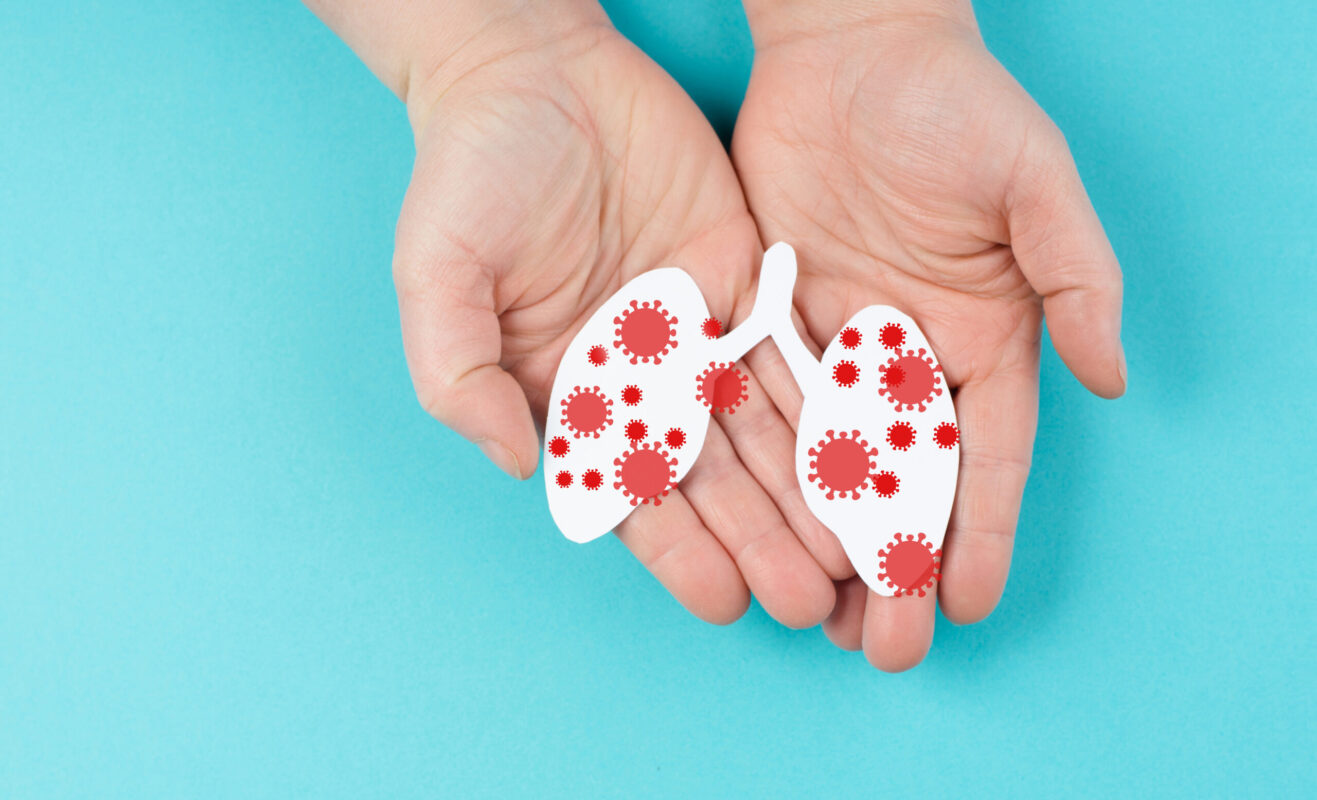This winter, experts warned about a health threat of a “tripledemic” posed by rising cases of COVID-19, the flu and RSV. While most people know about COVID-19 and the seasonal flu, fewer are familiar with RSV, also called respiratory syncytial virus.
WellTuned spoke with Dr. Bertram Prosser, a medical director with BlueCross BlueShield of Tennessee, to find out what we should know about RSV.
“Scientists believe that the end of social distancing and the less common use of masks are behind an uptick in RSV,” says Dr. Prosser. “While not everyone is at high risk for the virus, it is good to know what to look for and how to address it if you get it.”
What is RSV?
Dr. Prosser: RSV is a respiratory virus that tends to surge during the winter months. It often looks like a bad cold. The symptoms, which often appear in stages, include:
- Runny nose
- Coughing
- Sneezing
- Fever
- Decrease in appetite
- Wheezing
With young children, sometimes the only symptoms are breathing difficulties, irritability and decreased activity. So you may notice your child becomes less active and more irritable, or you may notice they’re not eating as much as they usually do.
How does RSV spread?
Dr. Prosser: RSV spreads just like the cold and the flu. When someone sneezes or coughs, respiratory droplets can make their way into your mouth, nose, or eyes. Or those respiratory droplets land on a surface, like a handrail or a doorknob, and you touch the contaminated surface, then touch your face.
Just as you would take certain steps to prevent the spread of other respiratory viruses, you can take steps to reduce the spread of RSV:
- Cover your coughs and sneezes with a tissue or upper shirt sleeve, not your hands
- Wash your hands frequently with soap and water for at least 20 seconds.
- Avoid close contact with others, including sharing cups and eating utensils, shaking hands, and kissing
- Clean frequently touched surfaces such as doorknobs and cellphones
- Avoid touching your face with unwashed hands
- Stay home when you’re sick.
Another note: You can also be contagious for a day or two before you start to show symptoms.
How is RSV treated?
According to the Centers for Disease Control and Prevention (CDC), there’s no specific treatment for RSV infection.
Dr. Prosser: Most people recover just fine from an RSV infection within a week or two. But immunity to this virus is short-lived, which means you can actually contract it twice in the same year. Luckily, a subsequent infection is usually milder. While you’re recovering, however, you may want to take these supportive-care steps to help relieve your symptoms:
- Manage your fever with an over-the-counter fever reduce such as ibuprofen or acetaminophen.
- Drink plenty of fluids so you’ll stay well hydrated.
- Rest
Who’s most at risk?
RSV can be especially dangerous for children under age 5. Every year, RSV sends many babies and toddlers to the hospital, and this year, RSV levels are especially high, leading to overflowing emergency rooms and pediatric intensive care units. RSV also poses an additional threat to adults over age 65.
Dr. Prosser: In the majority of cases, the symptoms are mild, and there’s nothing really that needs to be done except to rest, stay hydrated, and wait.
However, babies under the age of six months or those born prematurely are more vulnerable to developing a significant RSV infection. Their airways are smaller and thus more susceptible to worsening symptoms.
Unfortunately, a case of RSV can also lead to a more severe infection, such as bronchiolitis, which is inflammation of the airways in the lungs, or pneumonia. Don’t hesitate to call your child’s provider if you are concerned, especially if your child’s symptoms are getting worse or you notice a bluish tinge to your child’s lips, since that can signal low oxygen levels. In fact, anything that looks like your baby is working hard to breathe is a sign to head to the emergency room without delay.
Older adults, immunocompromised people, and people with chronic conditions like heart or lung disease should also be vigilant, since they are also at increased risk for significant infection.
How can you tell the difference between RSV and other viruses?
Dr. Prosser: The symptoms of RSV are often very similar other viral infections, including the flu and COVID-19. And since they can have similar symptoms, it can be hard to know for sure what you’re dealing with without a test to confirm. However, unlike flu and COVID-19, RSV usually doesn’t have any gastrointestinal symptoms.
The prospect of a “triple threat” is daunting. But keep in mind that doctors tend to manage these viruses in very similar ways when it comes to supportive care. Also, while there is not a vaccine for RSV, there are vaccines for influenza and COVID-19. Staying up-to-date on your vaccines can help you lower the chances of getting sick.
Dr. Prosser’s COVID-19 vaccine story on WellTuned.
Get more information about specific health terms, topics and conditions to better manage your health on bcbst.com. BlueCross BlueShield of Tennessee members can access wellness-related discounts on fitness products, gym memberships, healthy eating and more through Blue365®. BCBST members can also find tools and resources to help improve health and well-being by logging into BlueAccess and going to the Managing Your Health tab.


